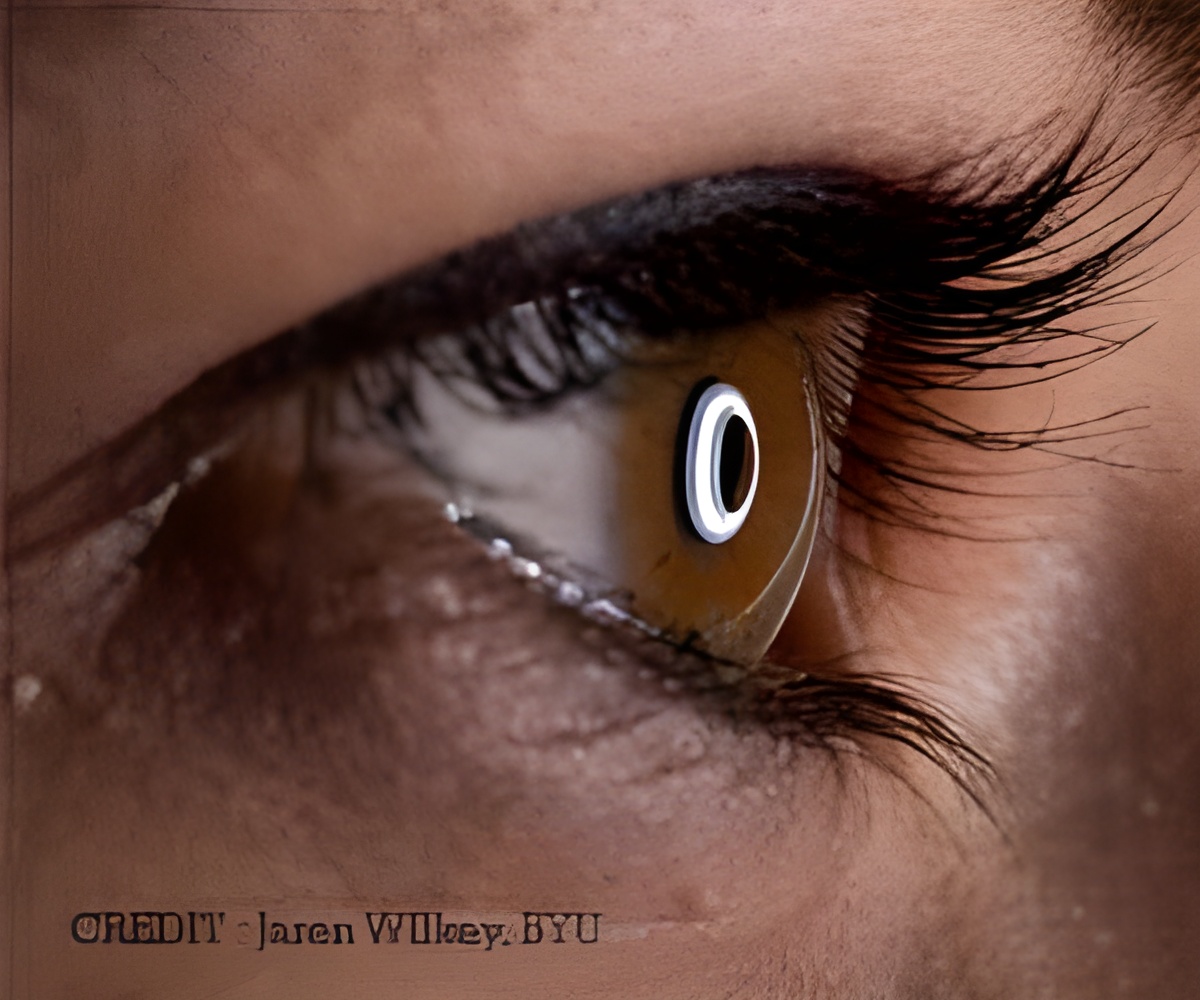
‘Your own eyes can reveal your relationship status. Therefore, scientists used an infrared camera to continuously measure pupil diameter, which is a direct signal of the body's physiological stress response.’
Tweet it Now
BYU psychology professor Wendy Birmingham's lab used an infrared camera to put an innovative twist on their latest study of marriage and stress.The experiment worked like this: 40 participating couples tried to complete an intentionally challenging task on a computer. Some of the couples were randomly assigned to work alone. The others got to sit near their spouse and hold their hand. While they worked, an infrared camera continuously measured pupil diameter, which is a direct signal of the body's physiological stress response.a close-up view of a human eye
"The neat thing is that the pupils respond within 200 milliseconds to the onset of a stressor," said Steven Luke, a study co-author and psychology professor at BYU. "It can immediately measure how someone responds to stress and whether having social support can change that. It's not just a different technique, it's a different time scale."
The experiment initially stressed-out participants in both groups. But the spouse support group calmed down significantly sooner, allowing them to work on the task at reduced stress levels.
Measuring health benefits from social connection in real-time is quite rare. It's also one reason the research is published in the highly-ranked scientific journal PLOS One.
Advertisement
"When we have a spouse next to us, and with us, it really helps us navigate and get through the stress we have to deal with in life," Birmingham said.
Advertisement
"It was a ton of work, and I learned so much throughout the process," said Graff. "It's amazing to be here and have fantastic mentors to guide me."
Source-Eurekalert











